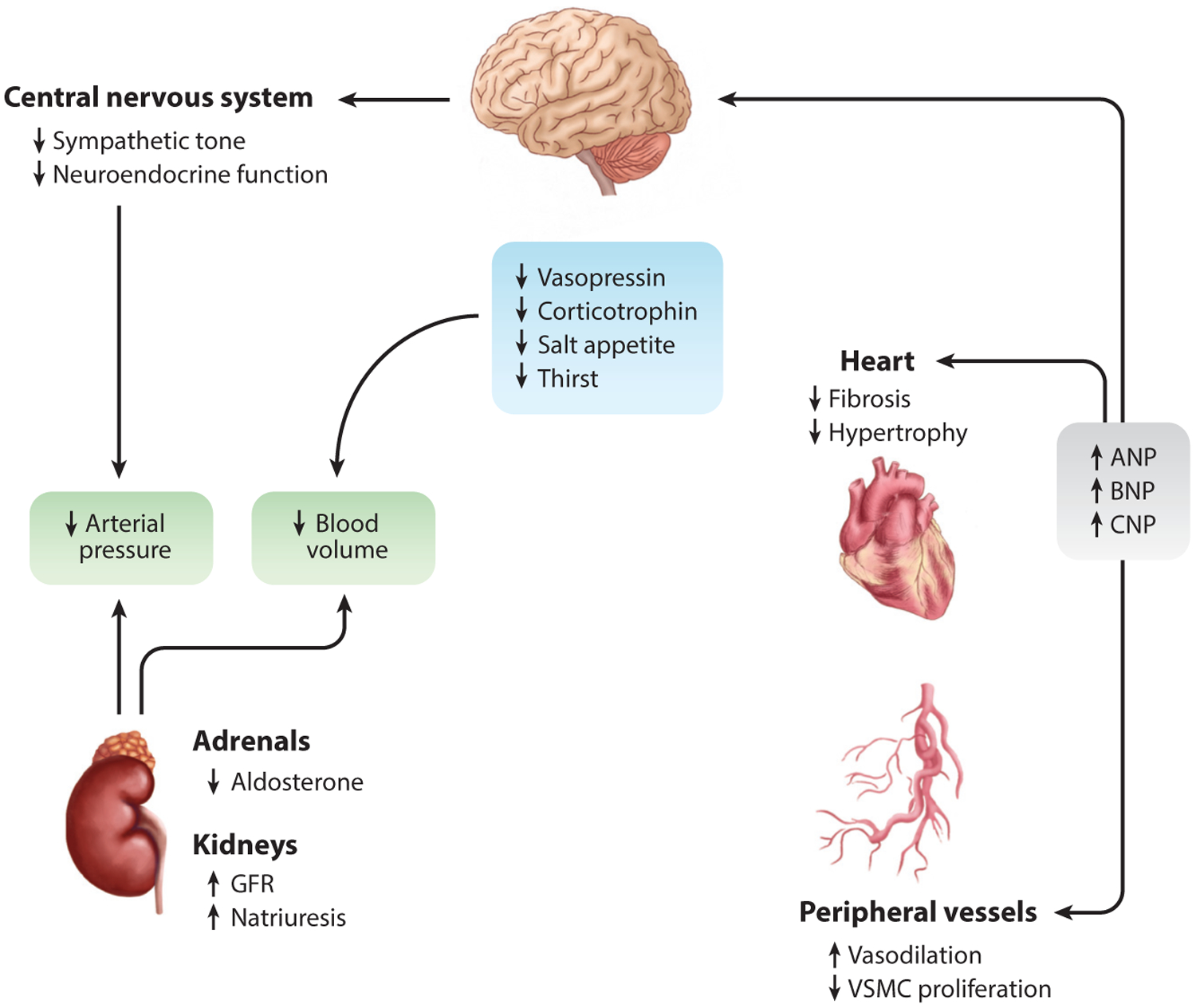Figure 3.

Cardioprotection by NPs in heart failure. Circulating NPs have cardioprotective effects in relation to cardiac, vasculature, central nervous system, and renal physiology. Increased circulating NPs have paracrine effects on peripheral organs (i.e., brain, adrenal glands, kidneys, and vasculature) and autocrine effects on the heart. Circulating NPs reduce central nervous system pathways that modulate natriuresis and diuresis, also providing reduced sympathetic tone. This offers several direct and indirect mechanisms culminating in reduced arterial blood pressure. Furthermore, NPs act in an autocrine manner on cardiomyocytes through inhibition of hypertrophy and other maladaptive signaling cascades. These local and remote mechanisms provide cardioprotection in the setting of heart failure. Abbreviations: ANP, atrial natriuretic peptide; BNP, B-type natriuretic peptide; CNP, C-type natriuretic peptide; GFR, glomerular filtration rate; NP, natriuretic peptide; VSMC, vascular smooth muscle cell. Figure adapted with permission from Reference 52; copyright 2013, American Physiological Society.
